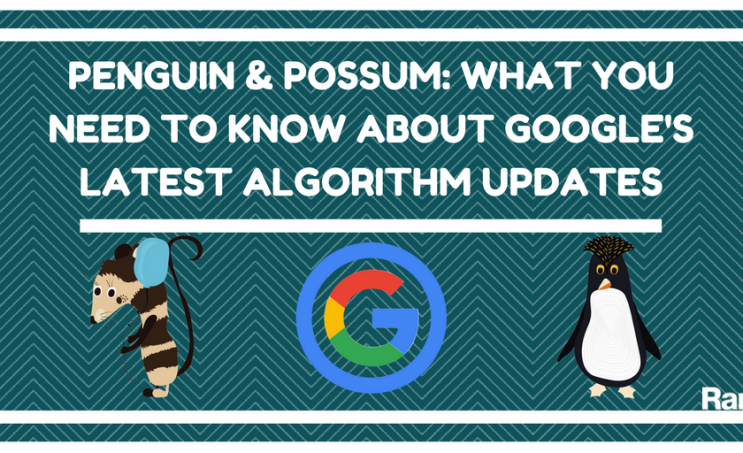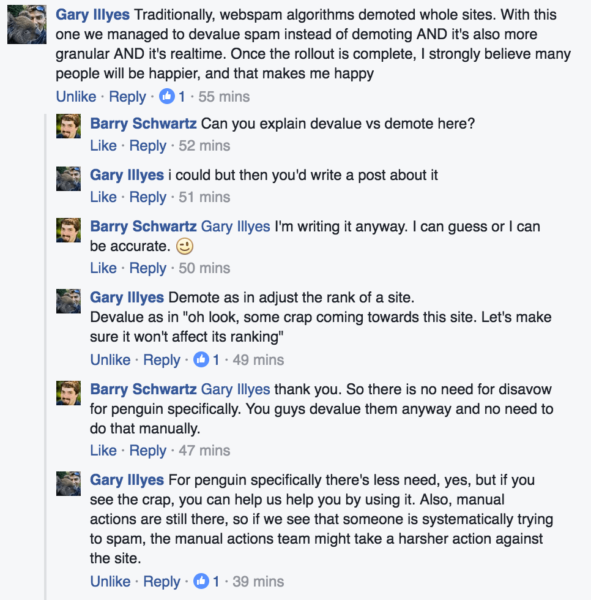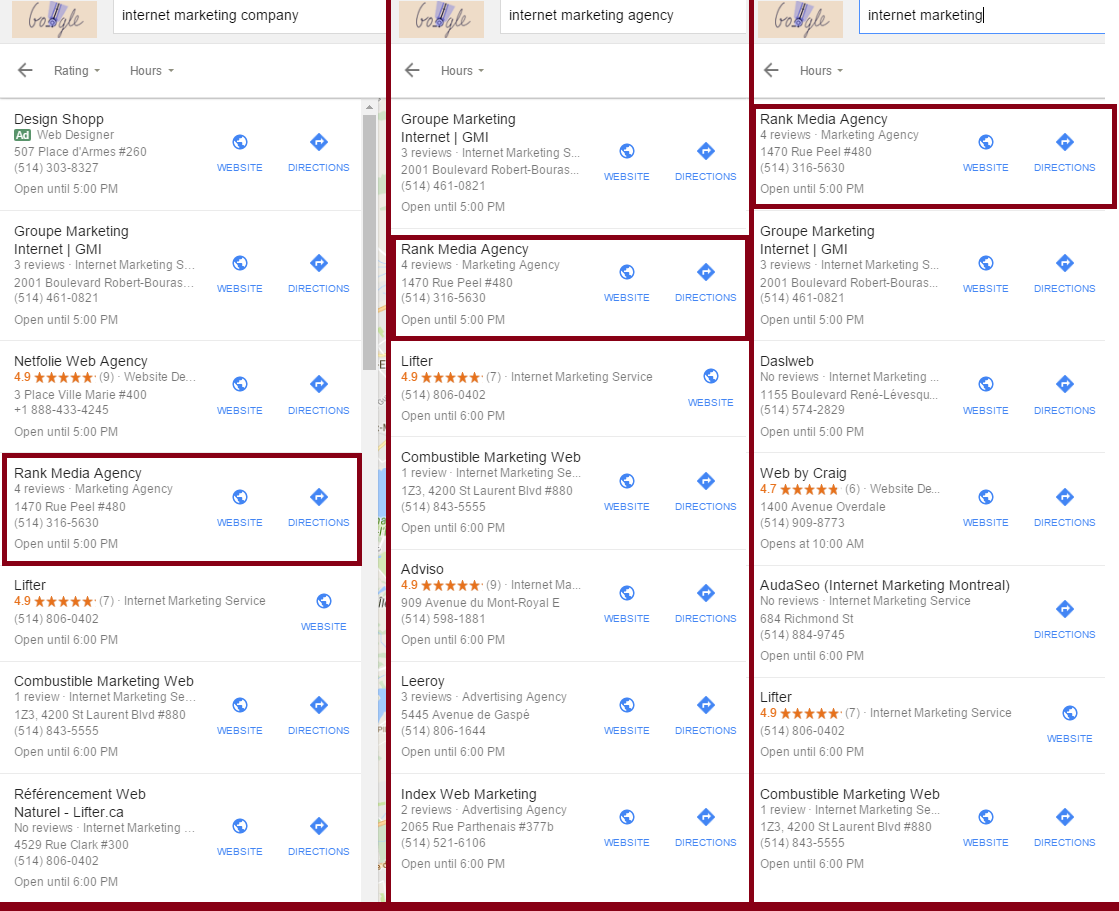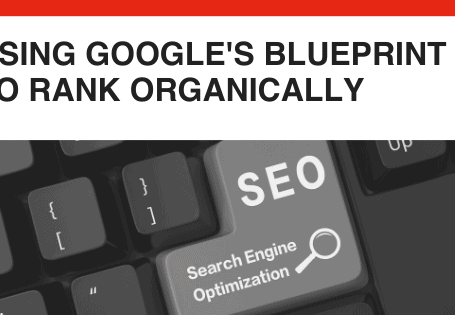Penguin 4.0 & Possum: What You Need to Know About Google’s Latest Algorithm Updates
By: Rank Media

There are three things certain in life: death, taxes, and algorithm updates from Google.
Now while that may be a hyperbolic statement, it is no surprise that Google tweaked with their core engine this month by launching two major algorithm updates: Possum and Penguin 4.0. To better understand how each algorithm update affects the search engine environment, check out the details below.
Penguin 4.0
Date: September 23, 2016.
Percentage of Queries Affected: Unknown – Algorithm now runs in real-time.
After almost two full years of waiting, Google has released an update to the Penguin algorithm. Aptly titled Penguin 4.0, this is the fourth major update that Google has launched since the algorithm’s inception. Additionally, it seems like this will be the final major update for Penguin, as the search engine giant announced that the web spam algorithm will be running in real-time within the core search engine. For those of you unfamiliar with the Penguin algorithm, it was Google’s major initiative in 2012 to combat spam that seems to permeate the search engine world. The algorithm targets websites that tend to use black-hat tactics or “over-optimize” to manipulate search rankings, using tactics such as cloaking, link scheming, keyword stuffing, and more.
As for what makes the fourth major iteration of this algorithm special compared to previous updates, here is a brief synopsis:
- Rather than operating on a periodic basis, the algorithm runs in real-time, which also happened with the Panda algorithm not too long ago. The benefit of going real-time for advertisers is the ability to recover from any penalties within days/weeks rather than waiting for the next update. For example, any sites that were penalized by Penguin 3.0, which was released October 17, 2014, had to wait nearly two years to have the penalties lifted. With this new algorithm update, webmasters can get their websites recrawled and reindexed, and have any potential penalties lifted within weeks.
- Previous Penguin updates focused on websites rather than specific pages. For example, if Google found any potential spammy tactics being employed on several pages, the entire website would be given a penalty. Nowadays, the algorithm will adjust rankings based on spam signals rather than penalizing the entire site. Of course, Google’s equivocal statements still have the search community wondering whether penalties will be assessed on a page-by-page basis, or if penalties will affect sections of a website instead.
What does this mean for your business? If you have been employing white-hat tactics to optimizing your website, then you shouldn’t be worried in the slightest. Additionally, it seems like Google will focus on devaluing spam rather than demoting sites with the new update, as confirmed by Gary Illyes of Google in the screenshot below. This also doesn’t mean that webmasters should stop disavowing low-quality links should the Penguin algorithm simply devalue them in the end. There is still the chance Google can apply manual actions (fancy word for penalties) to websites, so that component of backlink maintenance is still necessary.

Possum
Date: September 1, 2016
Percentage of Queries Affected: Unknown.
While the Penguin algorithm update affects websites, it seems like the recent Possum update affects only local results found within the 3-pack and Local Finder. For those of you unfamiliar with either of those terms, these are the local results supported by Google Maps. The biggest local algorithm update since Pigeon in 2014, Possum was launched in an effort to curb spam from ranking well and to add variety to local results. Here is a quick synopsis of the Possum update:
- Businesses that are based beyond the physical limits of a region will potentially see an increase in rankings if they serve the area. This means that if a highly reputable business serves clients in a specific city but lies outside the city limits, it would traditionally not rank high (or at all) within the local search results. This latest update to the local search algorithm helps these types of listings to see increased visibility for local search queries.
- Google has improved their filters for duplicate listings based on physical address and affiliation. Savvy digital marketers have been circumventing Google’s filter for duplicate listings by creating multiple listings for one business. However, rather than using the same website and phone number for multiple listings, they would create microsites and assign each location a separate phone number, bypassing Google’s filter for phone numbers and website. Yours truly found one local business applying such a tactic to dominate for queries related to “seo montreal”. With the new update in place, both the original listing AND duplicate listing have been removed, indicating that Google’s filter has become far more sophisticated and able to suss out listings built to manipulate search rankings.
- The user’s physical location has an increased impact on local search results. While it’s a given that Google will curate local results based on a specific location (as exhibited in my post about optimizing Google My Business last month), it seems to have an even bigger importance after the Possum update.
- Slight variations of search queries will display different results. As you can see from the example below, the top 7 results change significantly for the keywords “internet marketing company”, “internet marketing agency”, and “internet marketing”. The same applies to different variations of the region term users (e.g.: different results will be shown for “Los Angeles California” and “Los Angeles CA”).

Yep – we’re listed there.
The heavy fluctuation in rankings after this update seems to indicate that Google is still testing different ranking signals. However, the new filters seem to be working well with regards to removing spam from local results and preventing savvy marketers from using deceptive techniques to manipulate rankings. Additionally, businesses that fall outside a city’s limit will see increased visibility as long as their listing is optimized.
Want to learn more about the history of Google algorithm updates? Get more details here.







 (800) 915 7990
(800) 915 7990
